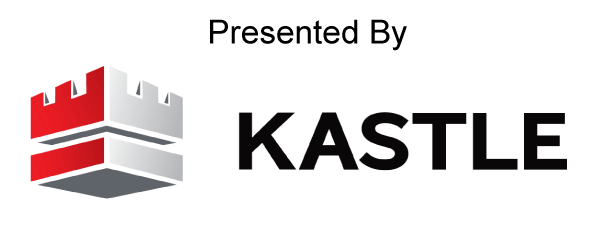Tuesday, June 10, 2025

On Tap Today
Can’t get no relief: Cuts in federal funding have left some worried that much needed disaster relief could be slow or non-existent.
Abandon ship: The economic situation has hit the construction sector particularly hard as construction delays, pauses, and cancellations have hit a record high.
Secure space: The government pullback from office space has created an opportunity for co-working spaces that are cleared for high-level security.
Parking webinar: Join our not-boring look at how smart tech can eliminate friction and wasted space from outdated parking while cutting costs and increasing revenue. Sign up
Presented by Kastle
Most smart cameras promise real-time alerts. But what about the bigger picture?
This free eBook breaks down why the real value of AI in video surveillance isn’t in the camera—it’s in the analysis that happens after. Learn how backend AI can unlock smarter forensic investigations, uncover hidden behavioral patterns, and turn raw footage into actionable insight—without replacing your existing hardware.
If you're managing physical security across multiple sites, this quick read will help you rethink where your surveillance system delivers its real ROI.
✅ Discover why backend AI is more powerful
✅ Explore real-world use cases and ROI comparisons
✅ Learn how to modernize without a full system rip-and-replace
Download the eBook and see how smarter analysis starts after the recording ends.
Federal Policy
Federal disaster funding cuts aren’t just political—they’re a seismic shift that’s rewriting the risk map for commercial real estate. As the Trump administration slashes FEMA and NOAA budgets, property owners face more than crumbling infrastructure—they’re grappling with weakened safety nets, inconsistent weather modeling, and the real possibility that federal relief won’t be there when needed.
But risk isn’t evenly distributed. Inland markets like western North Carolina vividly illustrate how historic events—like last year’s Hurricane Helene—expose the disparity in recovery capacity. Macomber at Harvard Business School underscores that it’s not just property that gets damaged—it’s the entire economic ecosystem: bridges, power grids, consumer confidence. As regions wait months for reimbursement, hard-hit areas shoulder mounting costs and delayed recoveries—a scenario that reverberates far beyond immediate losses.
That’s why a pivot to localized resilience planning isn’t just wise—it’s inevitable. Tech platforms like Lessen are already coordinating rapid, boots‑on‑the‑ground responses, while forward‑thinking public–private coalitions (Boston’s $5–$10 billion sea‑level defense idea) signal a new blueprint for disaster readiness. The critical question now: will commercial real estate step up to fund collective protection, or risk standing by as the next disaster strains fragmented systems beyond repair?
Overheard

Private Construction Project Abandonments Hit Record Highs in May
Private developers scrapped more construction projects in May than in any month since tracking began, according to ConstructConnect. The firm’s Project Stress Index, which tracks delays, pauses, and cancellations, rose 11.4% in May, pushing overall project stress 22.8% above 2021 levels.
Fueled by high interest rates and shaky market conditions, private sector abandonments are now up 92.2% year-over-year, hitting the highest level since mid-2019. Since the end of 2024, total abandonment activity has surged 66.5%.
Meanwhile, delayed bids have increased by 4.3%, and on-hold activity has decreased by 18.5%. In stark contrast to the private sector, public project abandonments remained steady, while on-hold activity declined by 15.2% over the past year.
The clean energy sector has been especially hard-hit, with roughly $8 billion in projects canceled or scaled back in the first quarter of 2025, including a $1.2 billion plant in Arizona and a $2.6 billion battery factory in Georgia. The data paints a troubling picture for the near-term health of private construction.

The federal government has been canceling office leases and selling underutilized office buildings in an attempt to cut spending. In a perfect world, federal employees could work from co-working spaces and eliminate the need for dedicated offices. But there is a hitch: many government workers and defense contractors need facilities that are designed for secure communication.
Co-working providers are starting to get security clearance to help solve this problem. One of these companies, Nooks, has been set up to serve startups that have been selected for testing by the military. But this could be only the beginning. As more government agencies plan on dropping their office space, they could find a better option in secure co-working sites.
Getting security clearance is not easy, so these secure sites would only be viable in places with highly concentrated government or military industries. Co-working properties that do get this clearance would be able to benefit from limited competition and a stable client base…at least until the next President is elected.
Webinar
Decoding Real Estate Podcast
Popular Articles
Are You Enjoying This Newsletter?
Propmodo Daily is written and edited by Franco Faraudo with contributions from readers like you and the Propmodo team.
📧 Forward it to a friend and suggest they check it out.
🔗 Share a link to this post on social media.
🗣 Have ideas for future topics (or just want to say hello)? Share your feedback and tips at [email protected] or connect with us on X through @propmodo.
✅ Not subscribed yet? Sign up for this newsletter here.
📫 Please add our newsletter email, [email protected], to your contacts to make sure you don’t miss any updates.
Enjoy reading about trends and innovation in commercial real estate? Subscribe to Propmodo.com for unrestricted access to reliable, data-driven journalism and exclusive insights available only to subscribers.








